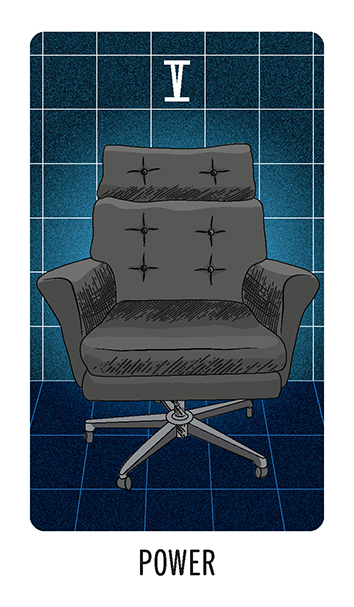Power
Power is relational. Who do we give the power to define us?
The history of being defined by someone else has left trans people feeling like victims, disempowered. The relationship between trans people and diagnosis becomes self-policing, thinking “If I do X, then they will think Y” as we second guess the gatekeepers.
The clinical space was there to mend us, like a dusty doll’s hospital. They existed when I was a kid, doll’s hospitals, I’d walk past them and wondered if I should sit in the window and wait. Clinical spaces always have conflicting narratives, needs, wants, and offers. There is always a gate, there is always a keeper.
Juno Roche
Many stereotypes and cliches that trans and queer people still struggle with today were created or reinforced by sexologists.
Until 2011, The Harry Benjamin International Gender Dysphoria Association (HBIGDA), released a Standards of Care (SoC) for transgender people that required people to be exclusively attracted to their birth sex in order to be classified as a “true transsexual” and access medical interventions. In other words, transition had to make you straight, not gay (and, of course, bisexuality is erased)
Always a gate, always a keeper.
One of our interviewees in Episode 3 recalls
“I’ll conform to your binary narratives or whatever. And I’ll say all the right things, as long as you treat me… because people are presenting in the way that they’re creating an expectation. And they’re feeding, they’re feeding that expectation, and it’s just… Some sort of, I don’t know… feedback loop?”
How can we change who we are in this scene? How can we hold the power? For some, it’s through telling their truth, sharing their stories.
I stood there to be the voice I needed to hear when I was younger, even the voice I still need to hear. It was simply to say I’m here, I exist; I have this his/her/their-story, these changing experiences of race, faith and gender in a world that doesn’t hear me and I know someone else needs to hear this. Standing on that stage proved that we can exist. Trans people of colour and faith exist and we are enough.
Sabah Choudrey
Our powerfulness, hopefulness and strength can be fed by our interconnectedness and solidarity with others. Our ability to be in mutual supporting relationships with others wanting social justice is a firm pathway to power. Our efforts for freedom are interwoven with others also seeking liberation from oppressions.
EXERCISE – SOLIDARITY TEAM
You might like to create a ‘Solidarity Team’ which is a group of people who serve as a network of support to you. This might be a group of real or imagined people, who are alive or have passed already. You can carry these people with you in actual or imagined ways.
Who in your life helps you to claim yourself as important and powerful?
Who are the people that help to support you as you know yourself to be and as you emerge into more of who you are?
- Who would you invite to be on your Solidarity Team?
- What qualities, resources, ideas, positions in relation to ethics and gender connect you with this person? Or this group of folks?
- How will you invite them to be on your team?
- How will you embrace Solidarity Team members that you don’t have physical contact with, like people who have passed on, or people you haven’t met? How will you bring them to mind and keep them with you?
- What are your expectations and hopes for how your Solidarity Team supports you? how will you invite them into this relationship with you?
- How do you hope to get support from your Solidarity Team? how can you invite them into this supportive network with you?
What difference will belonging in this Solidarity Team make for you? for the people you have invited? To the spaces you take them?

